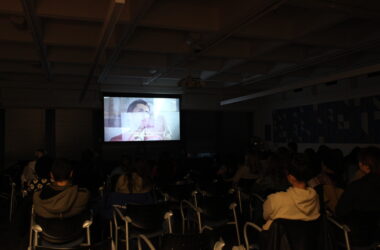As a Korean Canadian who immigrated to Canada at age 12, I had high hopes for Lee Isaac Chung’s Minari (2020), touted as a moving immigrant drama that tells the story of growing up Korean in 1980s Arkansas. Since its award-winning world premiere at the Sundance Film Festival, Minari has drawn immense critical acclaim. It appeared on the top movies of 2020 lists of 67 critics and took home the Golden Globe for Best Foreign Language Film—a controversial categorization that warrants its own discussion. I was disappointed to find, however, that Minari ignores the complex subtleties inherent to the lived experience of the Korean diaspora in favour of a cliched “immigrant story” watered down for a white audience.
When you watch something that is supposedly a representation of your lived experience, you hope to see authenticity in its depiction, especially if representations of your identity are rare. Minari’s most glaring failure of authenticity comes from Steven Yeun’s portrayal of Jacob Yi, a recent immigrant from Korea who moves to Arkansas to start a farm with his family. Jacob speaks broken, accented English that implies Korean is indeed his first language; however, Yeun delivers his Korean lines with a noticeable North American accent that makes Jacob sound less like a seasoned Korean farmer and more akin to a modern-day Korean American, like Yeun himself. The director’s disregard for the delivery of Yeun’s Korean dialogue is even more striking since Yeun’s efforts to alter his fluent English into an accented one garnered critical praise for his verbal command and likely contributed to his Best Actor nods from SAG, Critics Choice, and the Academy Awards. Yeun’s acting in general, while otherwise qualified, nonetheless is compromised by his dialectal shortcomings. His linguistic incongruence was distracting enough to prevent me from fully engaging with his performance—a viewing experience more easily afforded to non-Korean and predominantly white audiences.
Minari further misrepresents Korean Americans in its oversimplification of Korean family dynamics and the enduring racism experienced by racialized people. The hardship and tension within the Yi family is clear throughout the film, but is often portrayed without regard for the nuanced implications unique to a Korean family. For instance, when Monica’s (Han Ye-Ri) mother moves in with the family in Arkansas, there is a complex yet inherent discord that is not addressed: Traditionally, due to Confucian influences in Korean culture, it is considered abnormal—even shameful—to have maternal grandparents living with one’s family. Chung relies instead on universal tropes that do not accurately depict the Korean immigrant experience to create Minari’s family conflict.
Similarly, depictions of racism toward the Yis are reduced to a single three-minute scene in which well-meaning but clueless white churchgoers deliver a series of microaggressions: A woman in her Sunday dress refers to Monica’s accent as “cute” in an inadvertently condescending manner, and a white boy named John asks David (Alan Kim) why his face is so flat right before inviting him for a sleepover—the seriousness of his racist remarks was alleviated by his childish good intentions. Chung forgoes the opportunity to thoroughly examine systemic racism against Asian Americans, and instead delivers one single, cliche scene with comical undertones to address racism in the entire film.
As an immigrant, the desire to temper one’s otherness to appease a white majority is all too familiar. Chung, an immigrant himself, appears unable to escape this desire even in the telling of his personal story, prioritizing the viewing experience of white audiences over that of the Korean Americans he hoped to represent in his film. While the recent surge of Asian American representation in cinema is undoubtedly positive, true representation will not be realized until filmmakers are able to embrace their cultural identity and represent it accurately without adapting it for the white gaze.










Beautifully written. Insightful. Thank you Judy
Well written, Judy!